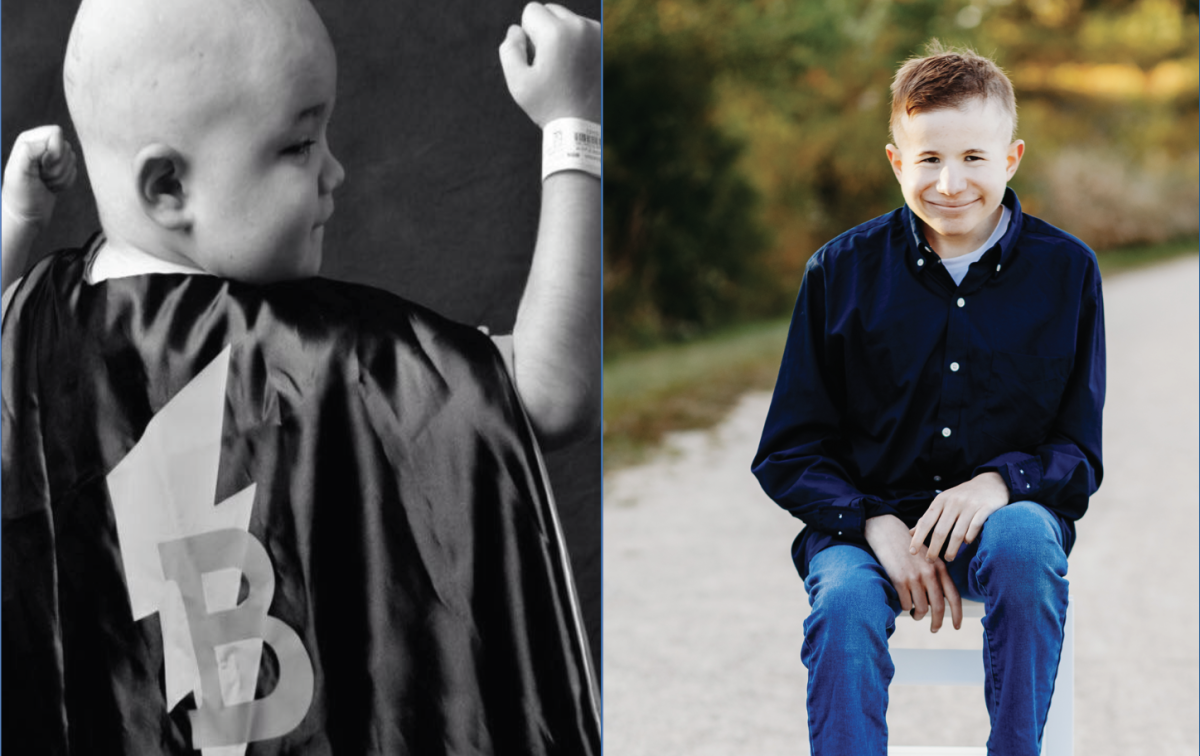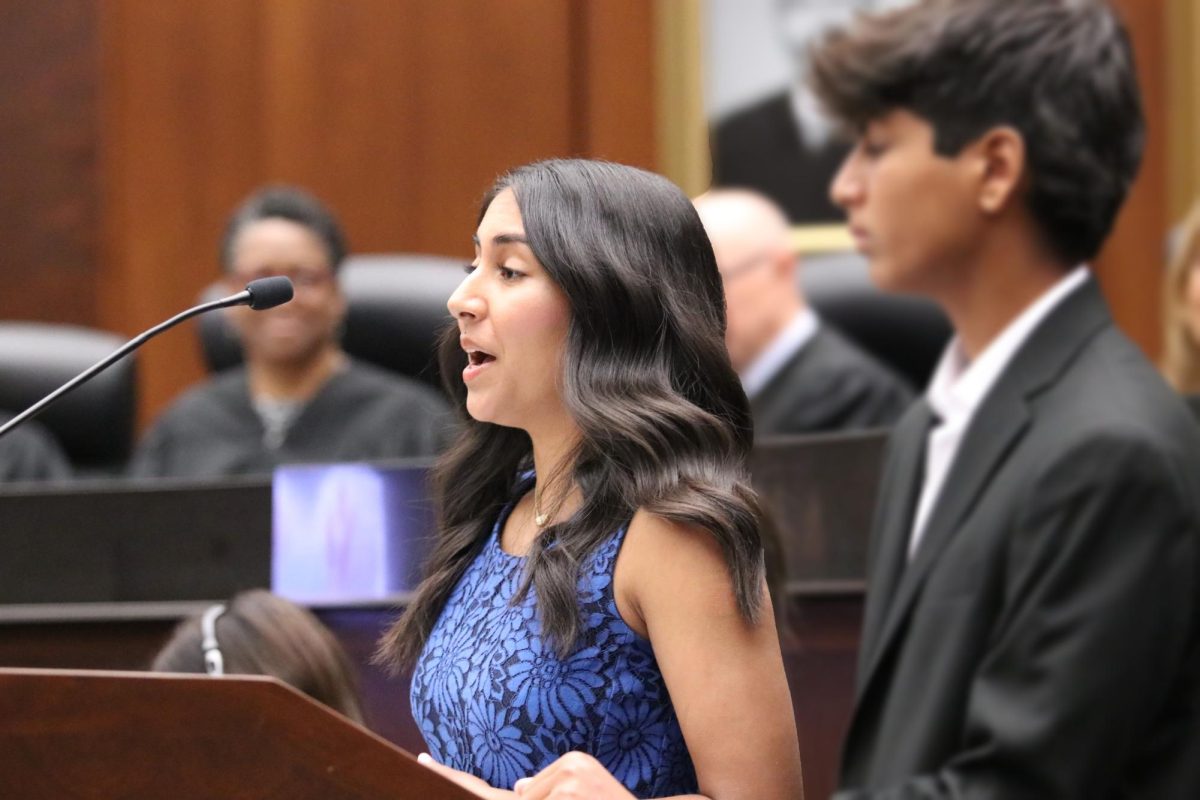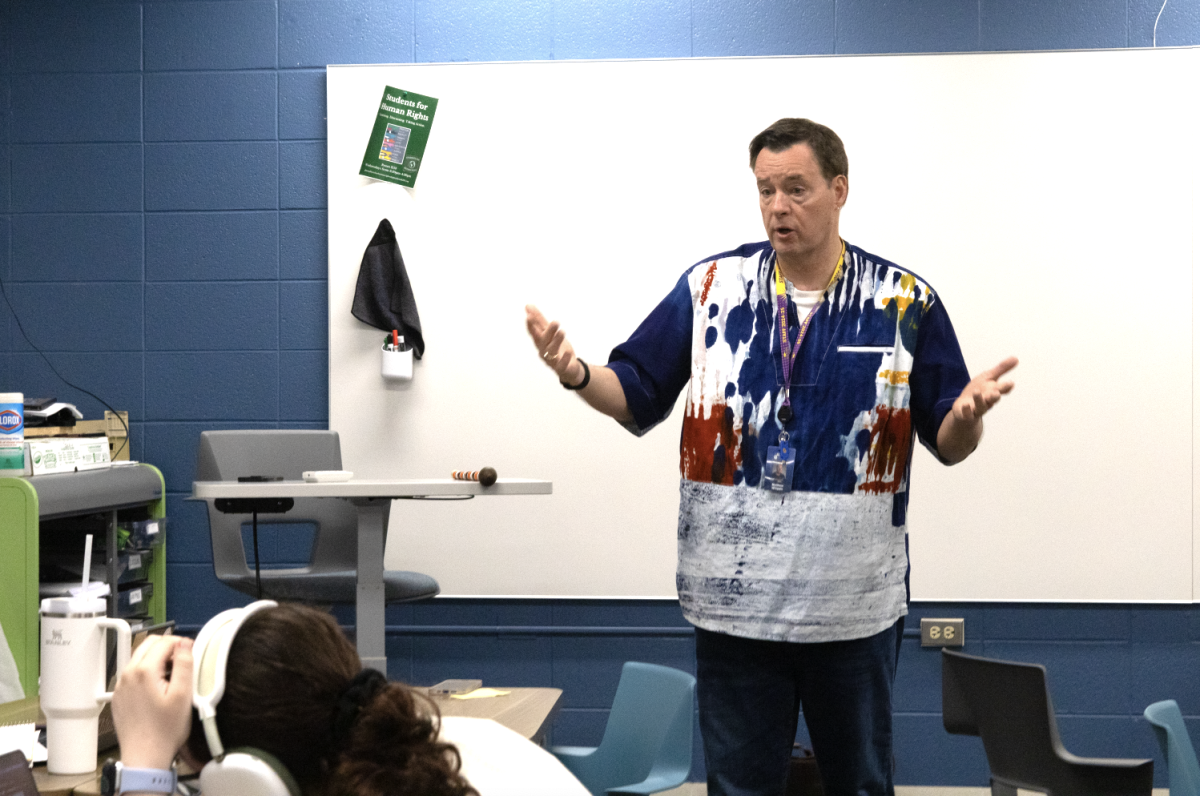For the majority of students at South, the topic of cancer is a touchstone, acting as something distant and a topic that is often tossed the seemingly obligatory “that’s horrible” when brought into conversation. To a small group of students at South, cancer is a topic that they are forced to come to terms with on a daily basis— and in a context closely linked to their loved ones.
For junior Grace Moran, the weight held by the topic of cancer is immense. A few months before Moran began her sophomore year at South, her grandfather was diagnosed with stage-4 brain cancer. Moran claims her initial reaction was shock, and she still feels this way, even one and a half years after being notified of her grandfather’s diagnosis.
“I just remember not believing it for a while,” Moran said. “He’s always been the healthiest of my grandparents. […] Whenever we’d have a family party, he was always the first one out on the dance floor.”
Sophomore Nick Moran’s reaction after being told of his grandmother’s breast cancer last May parallels the same sense of shock that Grace felt. Nick remembers the surprise of the diagnosis,and almost immediately felt shock and confusion echo through his entire family.
“I remember getting the call, and [my family] was driving out to get dinner, and the car went silent,” Nick said. “Usually our family is loud; we talk a lot, but the car was silent. There was no conversation to be had.”
First hearing of her mother’s diagnosed colon cancer during October of 2013, junior Taylor Abrahams recalls many negative thoughts take root in her mind after she was informed. She recalls fearing for her mother’s future and dwelling over the worst case-scenario of the disease’s outcome.
“I expected the worst, and when it turned out not to be the worst, it was like the weight of the world was lifted off my shoulders,” Taylor said.
Grace recalled that after learning of her grandfather’s diagnosis, her family felt its weight almost immediately and remembers the mood within her household turning from calm and light-hearted into panicked and stressed. She felt a pang of helplessness, knowing she could not do anything to change the diagnosis, but she looked within the strength of her family to help her through.
Taylor, like Grace, acknowledges the struggle of her journey dealing with her mother’s illness, but realizes the small, positive things that she was able to take away from the experience.
“[My mother’s cancer] was probably the biggest challenge I’ve ever had to face, but at the same time I learned a lot from it, and I’ll probably benefit in the future,” Taylor said.
Despite the fact that Nick felt the mood within his household change after his grandmother’s diagnosis, he attempted to gain something positive from the experience. Like Taylor, the diagnosis has shaped him since then.
“[The diagnosis] made me realize that as quickly as a person can come into your life, they can leave your life,” Nick said. “Why not leave them with a good impression? Why not be the light in their lives that they have before they go?”
Grace urges anyone who is dealing with a family member with cancer to stay positive. Alongside Nick and Taylor, Grace decided to pull something positive from her grandfather’s struggle.
“At the one-year mark of his diagnosis, I asked my grandpa what the most important thing he learned from this experience was,” Grace said. “He said to appreciate every single moment you spend with the people you love and care about, so I have tried to do exactly that.”








